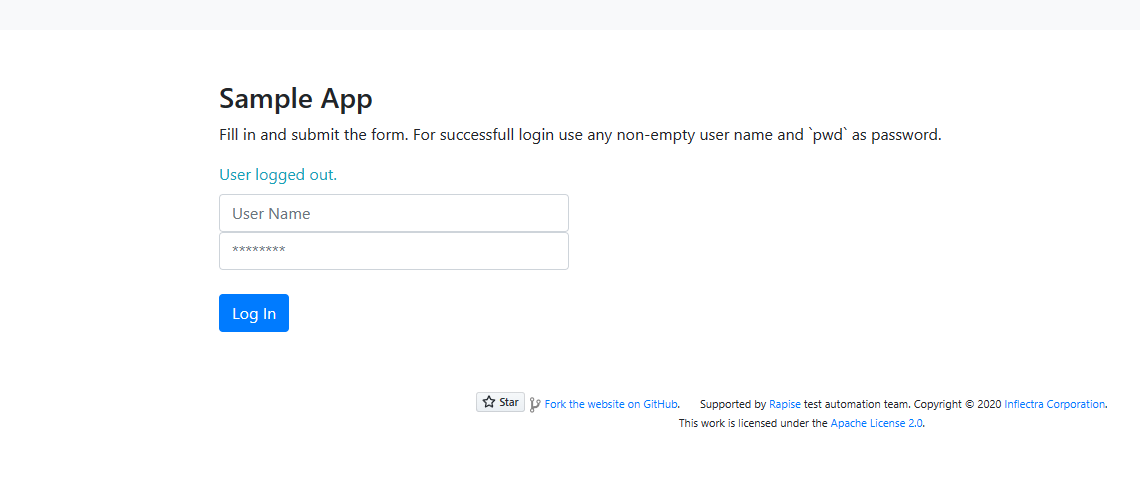First Playwright Automation
alright lets get into some automating! for the majority of this course we will be using the following: http://www.uitestingplayground.com/. So lets be good engineers and check out the website.
Specifically, lets check on the sample app link.
Sample app
Within the sample app it looks to be a simple login script. We can use any username here, and pwd as the password

Automation Playground Codegen
Lets take a look at playwrights code generation tool
npx playwright codegen uitestingplayground.comusing this command brings up the website, and we can click on various things to generate code from the code inspector. also, you can change to any language.

Although it is a good tool. it isn't without faults. finding everything by text isn't the best way to go about finding elements. there are better locators to use. lets take a look at a page and open our dev tools.
Element Selector Examples
WARNING
Although this information is still accurate, We should try for the new locators types when applicable
| Element Selectors | how to select in playwright (symbol) | example |
|---|---|---|
| CSS Selector Class | . | page.locator('.btn-primary'); |
| CSS Selector ID | # | page.locator('#btn-primary'); |
| By Text | text= | page.locator('text=Button'); |
| By Xpath | xpath= | page.locator('xpath=//button'); |
the main one to use would be by ID if it is available, because id's are unique, and don't have duplicates on a page. However, if you have a dynamic id, it will change every time on page load, and should not be used.
New locator Types
TIP
A list of the new best practice locators
page.getByRole()to locate by explicit and implicit accessibility attributes.page.getByText()to locate by text content.page.getByLabel()to locate a form control by associated label's text.page.getByPlaceholder()to locate an input by placeholder.page.getByAltText()to locate an element, usually image, by its text alternative.page.getByTitle()to locate an element by its title attribute.page.getByTestId()to locate an element based on its data-testid attribute (other attributes can be configured).
The problem with code-gen
Although the selectors here are good, there are a couple of issues
import { test, expect } from "@playwright/test"; // expect isn't being used
test("test", async ({ page }) => {
await page.goto("http://uitestingplayground.com/");
await page.getByRole("link", { name: "Sample App" }).click();
await page.getByPlaceholder("User Name").click(); // not needed
await page.getByPlaceholder("User Name").fill("ol' greg");
await page.getByPlaceholder("********").click(); // not needed
await page.getByPlaceholder("********").fill("pwd");
await page.getByRole("button", { name: "Log In" }).click();
await page.getByText("Welcome, ol' greg!").click(); // not an expect statement
await page.getByRole("button", { name: "Log Out" }).click();
await page.getByText("User logged out.").click(); // not an expect statement
});Not to mention none of these are reusable
We need to make sure we build reusable and stable tests early so we can build our scenarios
 Documentation Biome
Documentation Biome